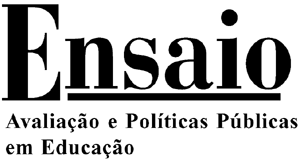Abstract
This paper examines the role of the Open University of Brazil (OUB) as a public policy for distance higher education, democratizing access to higher education and reducing social inequalities in the country. A literature review and a secondary data collection were performed. As OUB is part of the educational system, it is considered that in the OUB system the pedagogical action is performed in the sense of imposing the arbitrary culture of arbitrary power, serving as a tool for legitimizing social inequalities. The official discourse of OUB shows the assumption of the use of distance education (DE) for the purpose of the democratization of education and the reduction of social inequalities, as well as a clear influence of the liberal conception of universality. It is concluded that OUB, despite having to be constantly evaluated by social actors (State and Society) from a critical perspective, is an educational public policy that has positive overall results.
Public policies; Higher education; Distance education; Social inequalities; Open University of Brazil
